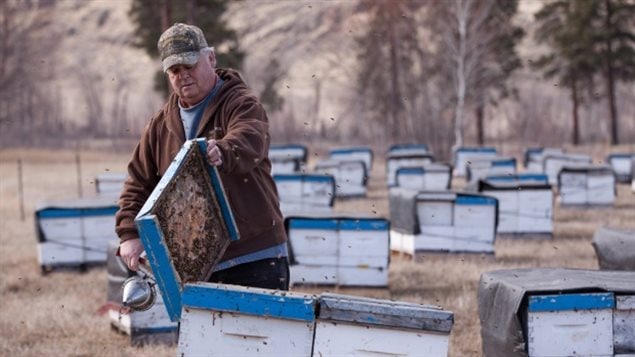Canadian honey producers want the government to increase and improve the testing of honey to ensure it is not being diluted with other sweeteners. They believe producers, particularly in Asia, are adulterating honey and so, are able to sell more cheaply. That, they say, has led to a drop in prices which is hurting legitimate producers.
ListenA world-wide problem
“Adulterated honey is a world-wide problem,” says Rod Scarlett, executive director of the Canadian Honey Council. “In fact, it’s been claimed that honey is the third largest food fraud item traded in the world behind olive oil and some spices.
“We know that there’s money to be made and those people that are diluting or adulterating honey are getting very good at it and are getting so good that the current technology used by our Canadian Food Inspection Agency doesn’t seem to be able to catch them.” Scarlett would like the agency to use new technology called nuclear magnetic resonance testing to determine the product’s composition and where it comes from.
It may not be pure honey in your granola bar
He says barrels of adulterated honey are purchased by food manufacturers and end up in products like granola bars and sweetened cereals, making it harder to detect. Testing must happen before that process, he adds.
Fears for the export market
Producers are worried not only about the drop in prices for honey and their ability to compete. They are also concerned that the United States will increasingly see Canada as a place where adulterated honey is transhipped and stop buying from here. That would be disastrous because the U.S. market absorbs 80 per cent of Canadian honey exports.
Canada’s honey production is worth $250 million annually.







For reasons beyond our control, and for an undetermined period of time, our comment section is now closed. However, our social networks remain open to your contributions.